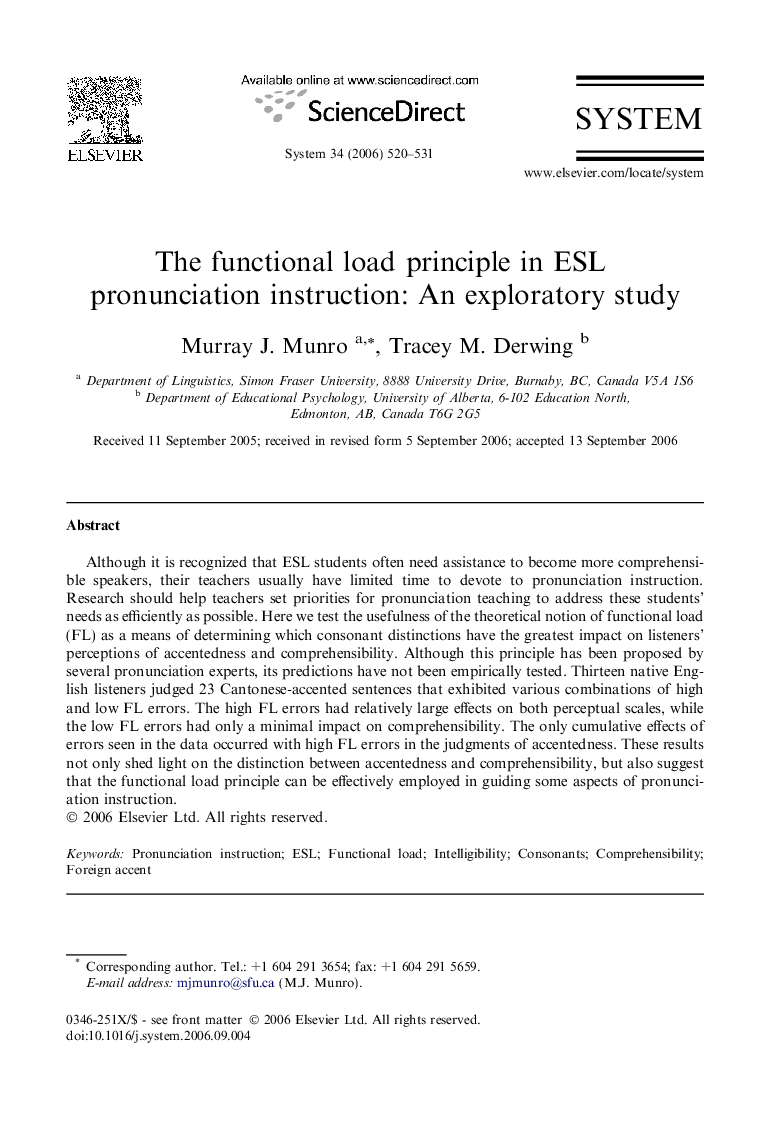| Article ID | Journal | Published Year | Pages | File Type |
|---|---|---|---|---|
| 373839 | System | 2006 | 12 Pages |
Although it is recognized that ESL students often need assistance to become more comprehensible speakers, their teachers usually have limited time to devote to pronunciation instruction. Research should help teachers set priorities for pronunciation teaching to address these students’ needs as efficiently as possible. Here we test the usefulness of the theoretical notion of functional load (FL) as a means of determining which consonant distinctions have the greatest impact on listeners’ perceptions of accentedness and comprehensibility. Although this principle has been proposed by several pronunciation experts, its predictions have not been empirically tested. Thirteen native English listeners judged 23 Cantonese-accented sentences that exhibited various combinations of high and low FL errors. The high FL errors had relatively large effects on both perceptual scales, while the low FL errors had only a minimal impact on comprehensibility. The only cumulative effects of errors seen in the data occurred with high FL errors in the judgments of accentedness. These results not only shed light on the distinction between accentedness and comprehensibility, but also suggest that the functional load principle can be effectively employed in guiding some aspects of pronunciation instruction.
